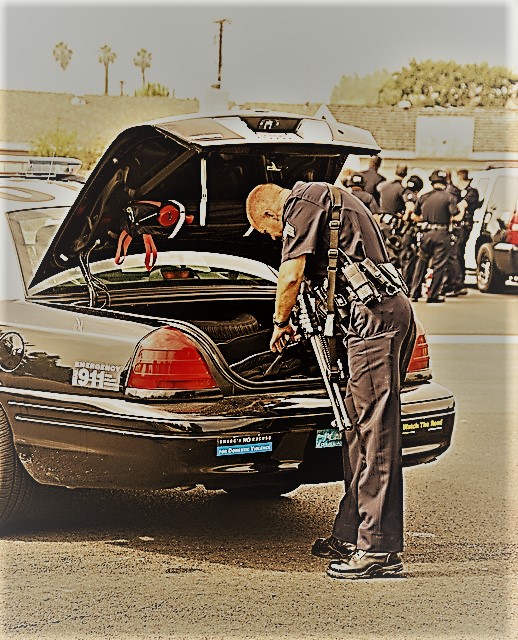A huge area in criminal defense is unlawful search and seizure. The Fourth amendment of the United States Constitution protects citizens from unlawful searches and seizures. What this means is that the government can't just break in and rifle through the belongings of US citizens. Unless of course they can meet certain criteria. Unfortunately, the power of the fourth amendment has slowly dwindled over the years. In some situations, the Fourth Amendment has almost no power at all.
Fourth Amendment Protections in Utah
Here in Utah knowledgeable law enforcement can legally search your vehicle in just a few simply steps. Basically side stepping the Fourth Amendment entirely.
First, the officer must find a reason to pull you over. The traffic code is currently so extensive, it is difficult to drive very far without a moving violation. If you commit a moving violation then that could warrant being pulled over. Additionally, it is often very hard to argue against an officer's testimony that you committed a traffic violation. For example an officer could pull you over for failure to signal because you didn't have your blinker on long enough before you changed lanes. Or an officer could pull you over for following the vehicle in front of you too closely. Both of these examples are very hard to challenge in court. Basically it comes down to your word against the officer's and often the judge sides with the officer.
Second, once the officer has you pulled over they can state that they smell the odor of marijuana. This claim is virtually impossible to challenge at court. Because only the officer really knows what he/she did or did not smell during the stop. So proving he/she is lying is really difficult. If the officer states he/she smelled marijuana then he/she now has probable cause to search your vehicle and you can do nothing about it.
Good News Comes Out of Kansas
In a recent case from Kansas a Federal District Court ruled in favor of the Fourth Amendment protection in a decision that will hopefully be upheld and followed by other courts. In United States v. Richmond, the Fifth Circuit found that an officer performed an unlawful search when he tapped the tire of a vehicle he had just pulled over. The officer was attempting to determine whether or not the tire was full of drugs. Filling tires with drugs is one way drug traffickers attempt to transport illegal substances undetected. The court basically stated that the officer touching the vehicle was considered a search. Because the officer didn't have the proper probable cause to perform a search, the search was therefore unlawful.
What Could This Mean for Your Case?
Unlawful search arguments are a huge tool for criminal defense attorneys. If law enforcement has violated your rights then its possible some of the evidence could be suppressed and in turn your case could ultimately be dismissed. Even if you're not one of the lucky ones that gets a dismissal, often unlawful search arguments can be used to encourage the prosecutor to offer a better deal. If you think there may have been a constitutional violation in your case give me a call and lets talk about it.


